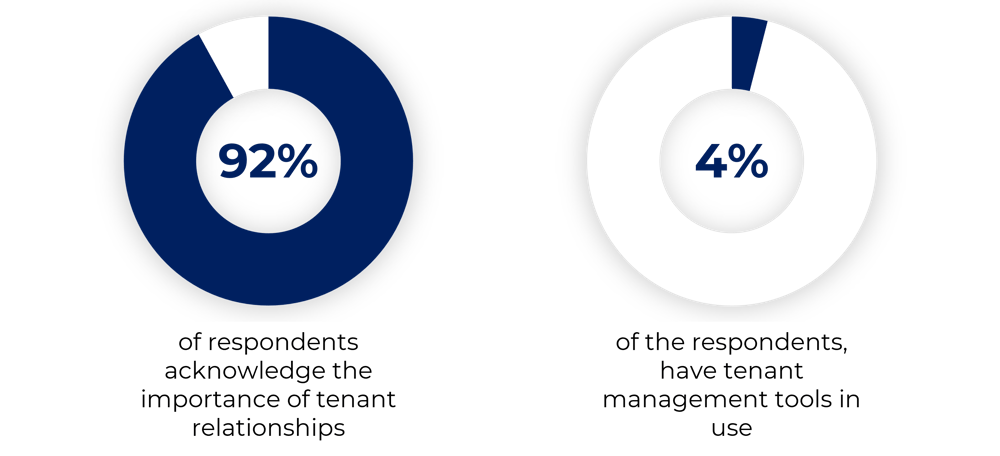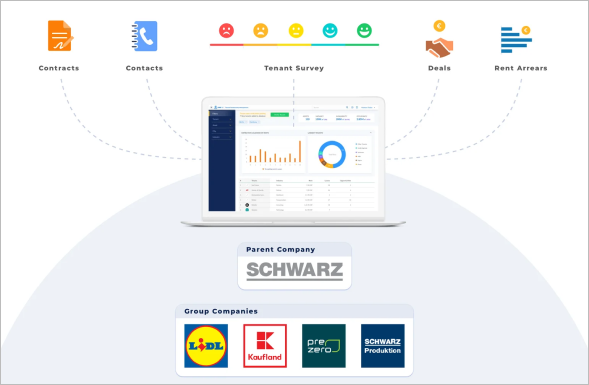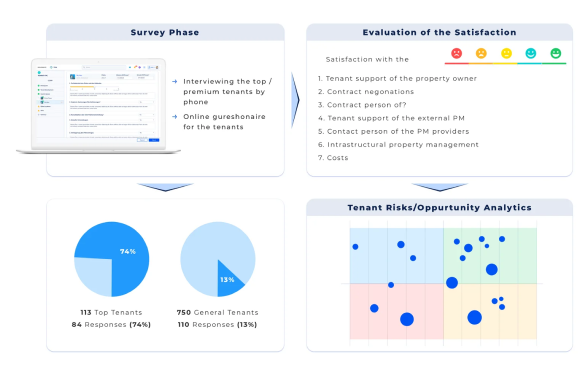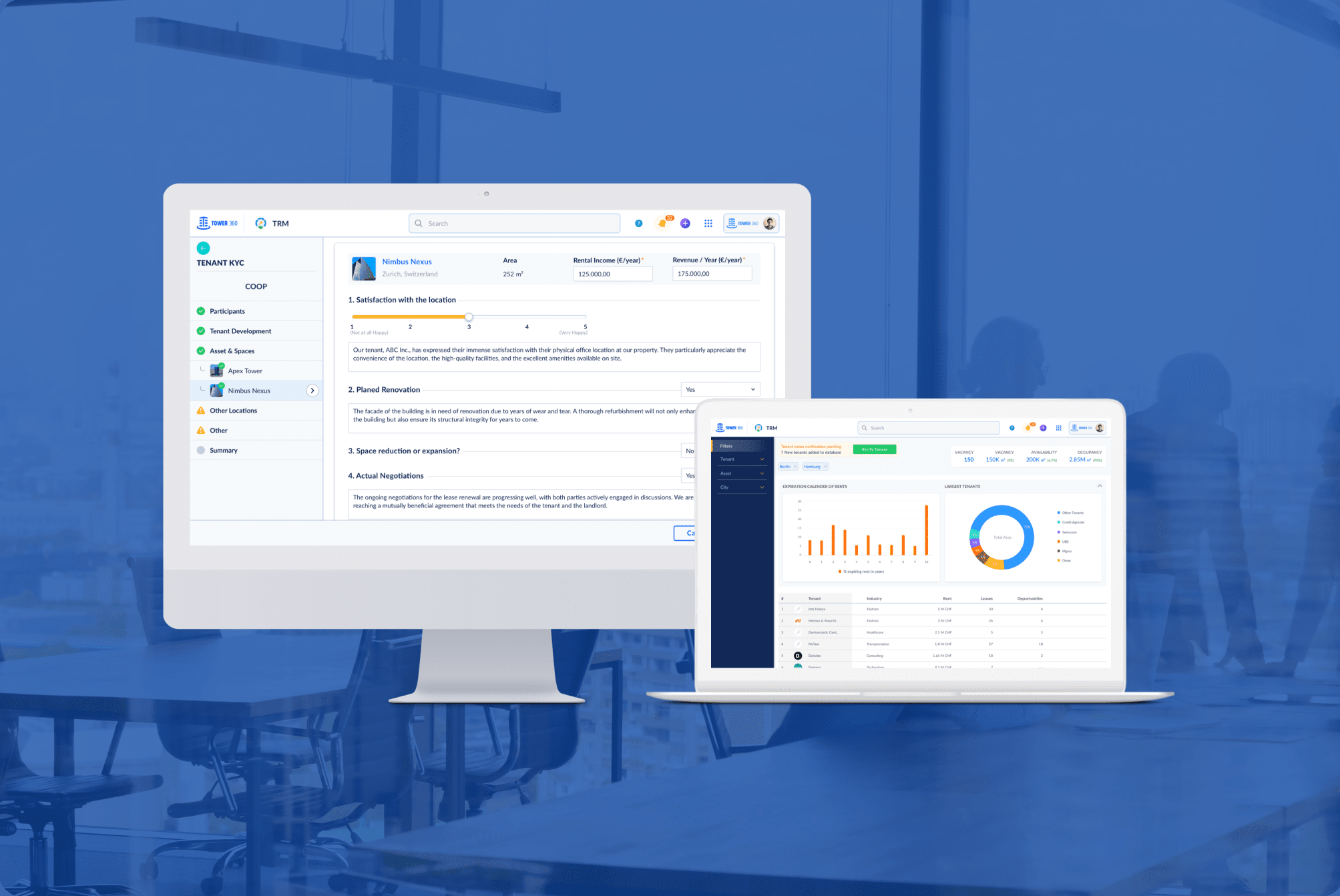In this dynamic environment, the extension of existing leases has become a top priority for asset managers.
According to our latest survey, 92% of European asset managers consider proactive tenant management to be extremely important in the current situation, but only 4% of respondents have a tool in place to fully implement their tenant management.

Challenges in the Current State
While property managers engage with tenants on a daily basis, owners and asset managers only interact occasionally, mainly with larger anchor tenants.
In the current state, tenant communication is still managed decentrally. Lease contract data, notes, lease extension discussions, contacts, and tenant surveys are stored in separate systems.
Critical information about tenant satisfaction, future space requirements, and lease extension strategies is not systematically captured and cannot be centrally analyzed. This information may even be lost when an employee leaves the company.
Central and Proactive Tenant Management with Tower360
The following objectives can be achieved:
Improving Data Quality
- Data validation of lease contracts to identify corporate structures and prevent duplicates (e.g., retail tenants with multiple lease agreements in different forms)
- Classification of the largest tenants based on square footage, annual revenue, or industry
Centralizing Data:
- Enhancing transparency and risk management through comprehensive tenant snapshots

Centralizing Tenant Information:
- Tenant communication
- Contact details
- Lease contracts
- Ongoing leasing opportunities
- Outstanding rental payments
- Tenant satisfaction surveys
- Lease extension discussions
- Reminders for important dates (e.g., expiring leases, break options, and proactive management of vacancy risks)
Conducting Tenant Surveys:
- Conducting and analyzing tenant surveys to gather valuable feedback
- Capturing future tenant developments through checklists and associated quantities (including dates, floor sizes, etc.)
- Analyzing growth opportunities and risks

The ROI of Proactive Tenant Management
Asset managers can better anticipate the impact of hypothetical events on their portfolio and its performance by utilizing the tenant management module of Tower360. This includes scenarios such as lease downsizing or fluctuations in specific industries.
This proactive approach enables asset managers to take timely and proactive countermeasures. For instance, they can terminate a space or retrieve it from a tenant with lower space requirements, even before the lease expiration, to accommodate a key tenant with higher space needs and retain them in the property or prolong their lease.
Increasing the lease renewal rate enhances revenues (and reduces costs), consequently improving the overall profitability of the property/portfolio and its competitiveness in the market.
In summary, the implementation of the tenant management module in Tower360 leads to increased tenant retention, reduced risks, and higher rental income.


